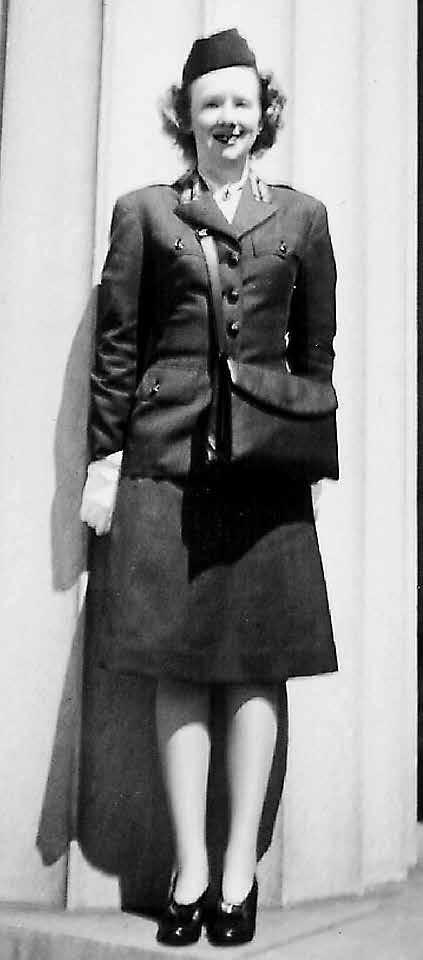
2 minute read
Veterans First: Northland women who served emphasize duty over gender concerns
national leaders, by the tributes from younger women. But local women who served in World War II say they never claimed they were entitled to a $21.5 million monument.
They haven't spent the decades since their military service brooding about the sort of commemoration they deserved, the local women said during a gathering in Rust's living room this month. No more than they worried about their rights as women when World War II was under way, when they were trying to comfort soldiers healing from burns, lost limbs and mental illness.
"We were too busy working,'' Rust explained.
Admitted to post
In the Northland, veterans of World War II outnumber those from other conflicts. The 1990 census found that of 46,000 male and female veterans in eight Arrowhead counties, about 17,750 served during World War II. Another 12,500 served in the Vietnam era.
Members of a generation that came of age before the feminist movement can nevertheless appreciate the progress women have made in the military and society at large.
Beatrice Yanda has seen it. Disappointment still comes through in her voice when the World War II veteran talks about moving to Cloquet in 1963 and applying to the local
Veterans of Foreign Wars club. She was turned down because, like many fraternal organizations, the VFW at that time refused membership to women.
"I was overseas. I just felt that I should be able to join, too,'' Yanda said. "We all felt it was our privilege to join, just like the men.''
It was 1978 when the VFW dropped the prohibition. When Yanda heard about the policy change, she left work immediately and went to the post to apply.
But Yanda only attended one meeting. As the only female member, she felt uncomfortable. She started attending regularly only this year when she had company -- a local woman who served in the Korean War and two women who served in the Persian Gulf War. By then, things had changed. One of the gulf vets had just finished a term as the post's commander -- Joy Collins-Baxter of Cloquet, now a regional VFW officer.
In the field
Yanda felt entitled to a seat in the VFW hall because of her work in Army field hospitals in England. The mobile hospitals treated people injured by Nazi bombing raids and Allied troops who fell ill during preparations for the D-Day invasion at Normandy. After the invasion began, Yanda served in tent hospitals that received injured soldiers transported back from France.
Another Northland woman followed the invading forces. Like Yanda, Elizabeth "Dolly'' Donahue of Lincoln Park (West End) enlisted as an Army nurse in 1943 and was stationed in England in 1944.
A few months after D-Day troops started the march that eventually pushed the Nazis from Western Europe, Donahue crossed the English Channel in an LST and waded to shore at Omaha Beach. Donahue's unit set up a tent hospital as casualties reached 300 a night.
Continued on page 20










